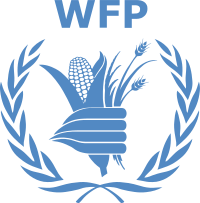
Back برنامج الأغذية العالمي Arabic বিশ্ব খাদ্য কাৰ্যসূচী Assamese Dünya Qida Proqramı Azerbaijani Svieta jiedė pruograma BAT-SMG Сусветная харчовая праграма Byelorussian Световна програма по прехраната Bulgarian বিশ্ব খাদ্য কর্মসূচি Bengali/Bangla Svjetski program za hranu BS Programa Mundial d'Aliments Catalan بەرنامەی جیھانی خۆراک CKB

The World Food Programme[a] (WFP) is the food-assistance branch of the United Nations and the world's largest humanitarian organization. It was founded by Food and Agriculture Organization in 1961. Its mission is to end hunger and helping giving people food.[1]
According to the WFP, it gives food assistance to an average of 91.4 million people in 83 countries each year.[2] From its headquarters in Rome and from more than 80 country offices around the world, the WFP works to help people who cannot make or get enough food for themselves and their families.
It is a member of the United Nations Development Group and part of its executive committee.[3]
It was awarded the Nobel Peace Prize in 2020.[4] The current executive director of the WFP is Cindy McCain.
Cite error: There are <ref group=lower-alpha> tags or {{efn}} templates on this page, but the references will not show without a {{reflist|group=lower-alpha}} template or {{notelist}} template (see the help page).
- ↑ WFP. "Mission Statement". WFP. Retrieved 2 November 2013.
- ↑ Overview. WFP.org. Retrieved 2018-11-19
- ↑ The organization has been awarded the Nobel Peace Prize 2020 for its efforts to combat hunger, for its contribution to bettering conditions for peace in conflict-affected areas and for acting as a driving force in efforts to prevent the use of hunger as a weapon of war and conflic Executive Committee Archived 2011-05-11 at the Wayback Machine. Undg.org. Retrieved on 2012-01-15
- ↑ "World Food Program wins 2020 Nobel Peace Prize". NBC News. October 9, 2020.